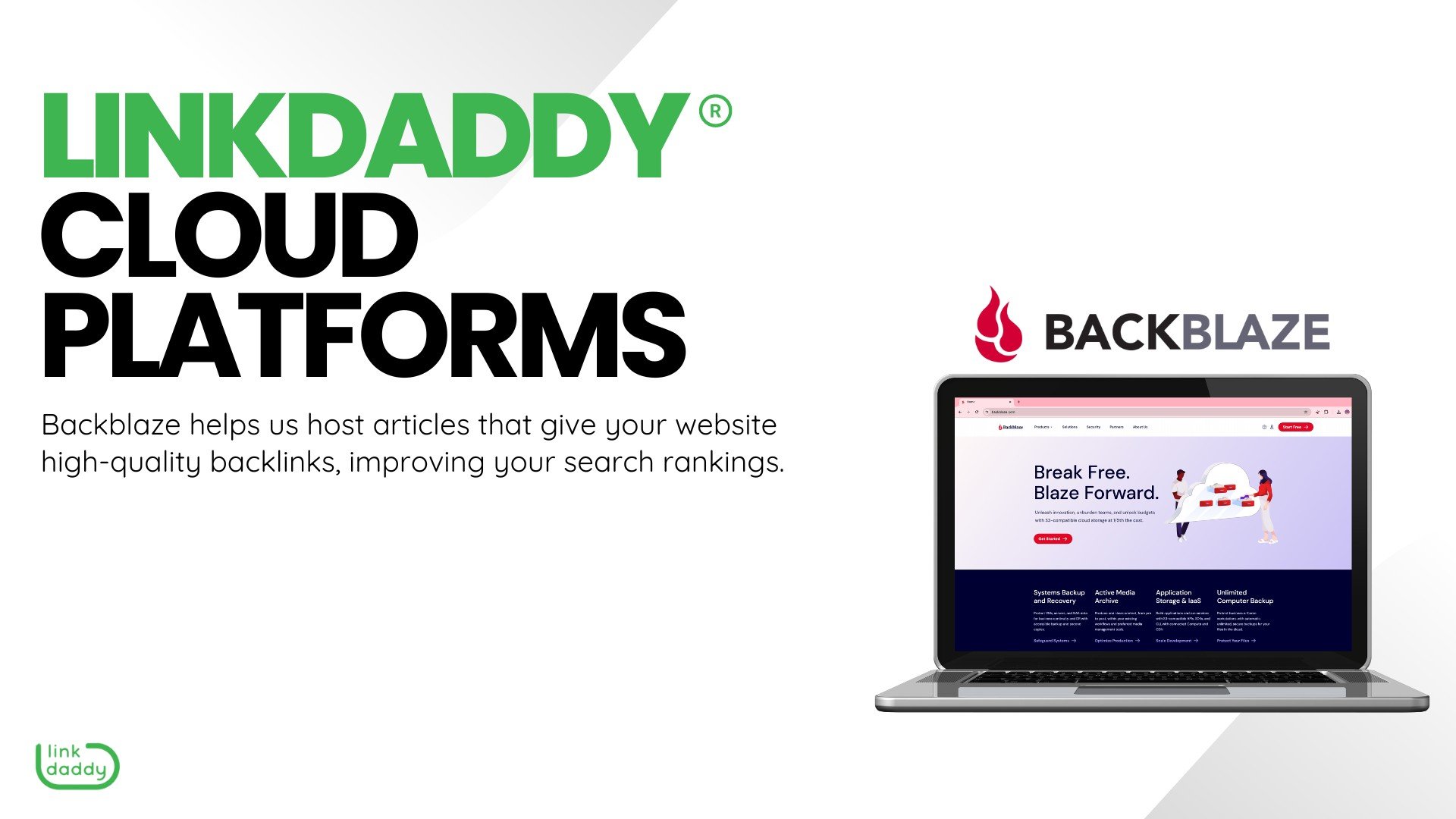Understanding the Different Kinds Of Cloud Services and Their Uses
From Framework as a Solution (IaaS) to Software Program as a Solution (SaaS), each kind of cloud solution offers an one-of-a-kind purpose and offers distinct advantages. By discovering the nuanced functionalities and applications of each cloud service, one can navigate the intricacies of cloud computer with accuracy and foresight.
Framework as a Service (IaaS)
Framework as a Solution (IaaS) supplies individuals with virtualized computing sources over the net on a pay-as-you-go basis. This cloud computer design provides crucial IT framework such as online machines, storage, and networking without the demand for companies to purchase and manage physical web servers and data facilities. With IaaS, customers can scale sources up or down based on their requirements, offering adaptability and cost-efficiency.
Among the key benefits of IaaS is its capacity to quickly provision and release facilities components, enabling organizations to react rapidly to transforming needs and market conditions. By outsourcing infrastructure monitoring to the provider, companies can focus extra on their core service tasks as opposed to managing the complexities of hardware upkeep and upgrades.
Furthermore, IaaS provides a high degree of dependability and safety, with carriers usually offering durable data backup, calamity recovery, and cybersecurity actions. This helps make certain that vital business operations continue to be undisturbed and data stays protected against prospective threats. Cloud Services. Overall, Framework as a Solution enhances IT operations, enhances scalability, and minimizes capital investment for organizations of all sizes
Platform as a Service (PaaS)
Building upon the foundation of Facilities as a Service (IaaS), System as a Service (PaaS) uses a thorough environment for programmers to create, deploy, and manage applications without the complexities of underlying infrastructure management. PaaS provides a system with devices and solutions that enhance the advancement process, allowing developers to focus on creating code and structure applications rather than managing framework worries.

Software as a Solution (SaaS)
Software as a Solution (SaaS) transforms the way services access and utilize software application applications by supplying them on a membership basis via cloud service providers. This cloud computer design removes the requirement for companies to install and preserve software program on individual devices, as every little thing is organized and handled centrally in the cloud.
SaaS provides a cost-effective service for companies as they just spend for the browse this site software they use without the added expenditures of equipment maintenance or software updates. It also uses scalability, permitting business to easily adjust their software application demands based upon their demands.
Moreover, SaaS applications can be accessed from any type of tool with a net link, advertising collaboration and flexibility among remote teams. Safety is a leading concern in SaaS, with companies applying durable measures to protect information stored in the cloud.
Popular examples of SaaS include customer relationship management (CRM) software like Salesforce, productivity devices like Microsoft Office 365, and collaboration systems like Google Workspace. SaaS continues to gain grip in the business world due to its scalability, cost-efficiency, and ease.
Feature as a Solution (FaaS)
With the advancement of cloud solutions like Software application as a Service (SaaS) improving software delivery, Function as a Solution (FaaS) represents a paradigm change in exactly how code is carried out in a serverless atmosphere. FaaS allows programmers to create and carry out individual features or items of code in reaction to specific occasions without the need to handle the facilities. This serverless computer design enables programmers to focus solely on creating code to carry out specific functionalities, without worrying themselves with the underlying infrastructure or web server management.
Functions are executed in stateless containers that are rotated up and down as required, guaranteeing optimum resource usage and cost-effectiveness. By extracting the infrastructure layer, FaaS simplifies growth, accelerates time to market, and improves total agility in deploying cloud-native applications.
Storage Space as a Service (STaaS)
An essential part in cloud computing, Storage as a Solution (STaaS) provides customers with a scalable and reliable solution for handling information storage blog space requirements. STaaS enables companies to store and get data from remote servers by means of the web, removing the demand for on-premises equipment. This solution supplies versatility by making it possible for users to pay only for the storage they utilize, making it an affordable option for organizations of all dimensions.

STaaS is particularly beneficial for businesses with rising and fall storage space demands, as it provides a reliable and safe and secure storage remedy without the demand for considerable upfront financial investments. By leveraging STaaS, companies can enhance their data monitoring processes, boost availability, and improve information security in a cost-effective manner.

Verdict
In verdict, recognizing the different types of cloud services and their uses is important for companies and people looking to leverage the benefits of cloud computing. By using the appropriate cloud solution, companies can boost their performance, scalability, and flexibility in managing their IT infrastructure and applications.
From Infrastructure as a Service (IaaS) to Software as a Service (SaaS), each type of cloud solution offers a special purpose and provides distinct advantages. cloud services press release. By discovering the nuanced performances and applications of each cloud service, one can navigate the complexities of cloud computer with accuracy and insight
With the advancement of cloud solutions like Software as a Solution (SaaS) enhancing software program distribution, Feature as a Service (FaaS) represents a standard shift in exactly how code is implemented in a serverless atmosphere.In final thought, understanding the various kinds of cloud services and their usages is crucial for people and services looking to utilize the advantages of cloud computing. By utilizing the right cloud solution, organizations can boost their performance, scalability, and versatility in managing their IT framework and applications.